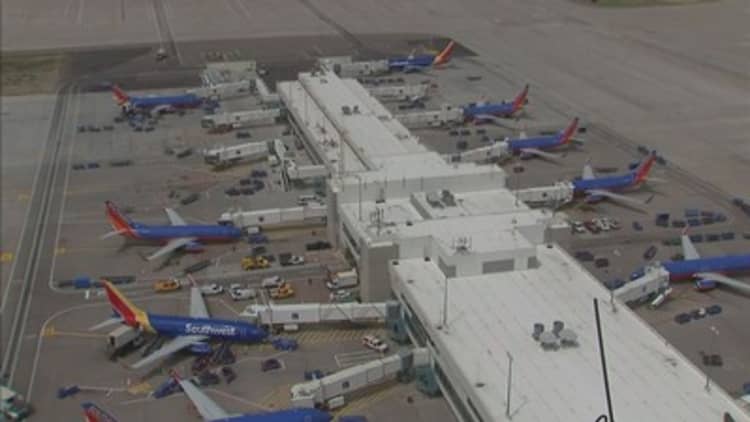
When booking flights, the early bird rarely gets the worm.
There's usually a sweet spot when airlines offer the cheapest airfare for a specific itinerary and the winning passengers are neither the early planner nor the last-minute traveler.
While the prime booking window for U.S. domestic flights can range from three weeks to 3½ months in advance, international flights are less expensive at least two months before travel dates.
The study by CheapAir.com reviewed more than 350 million airfares between the U.S. and more than 3,000 markets to uncover the best time to book.
The prime time for booking flights between Asia and the U.S. saw a drastic change from last year, going from a recommended seven to nine months in advanced, to just three months, according to the research.
"There is an excess capacity on trans-Pacific flights (especially China)," CheapAir.com CEO Jeff Klee said. "If there are more seats available at the lower price point at dates closer to travel, the over-supply might explain this phenomenon, at least in part."
When booking flights to or from the U.S., here is the best time, on average to book:
- Canada: 59 days
- Mexico: 61 days
- Asia: 90 days
- Europe: 99 days
- Africa: 119 days
- Middle East: 119 days
- Central America: 61 days
- Caribbean: 76 days
- South America: 81 days
"In most markets, someone buying a ticket two months before a flight will pay less than someone buying a ticket 10 months before a flight," said Seth Kaplan, managing partner of Airline Weekly.
For instance, a passenger booking 10 months in advance (for something like a honeymoon) or very last minute (perhaps for a business meeting or family emergency) is often willing to spend more on airfare. Discretionary passengers booking just a month or two in advance, meanwhile, are usually not as restricted to specific dates or location — or even all that adamant about taking a trip.
Still, the rules can be thrown out the window when travelers are booking around peak times, such as Christmas, New Year or summer holidays — particularly in Europe.
"These are averages, not hard-and-fast rules," Kaplan said. "If you see what looks like a too-good-to-be-true cheap fare many months before you plan to travel, grab it — that particular fare won't necessarily drop further."


